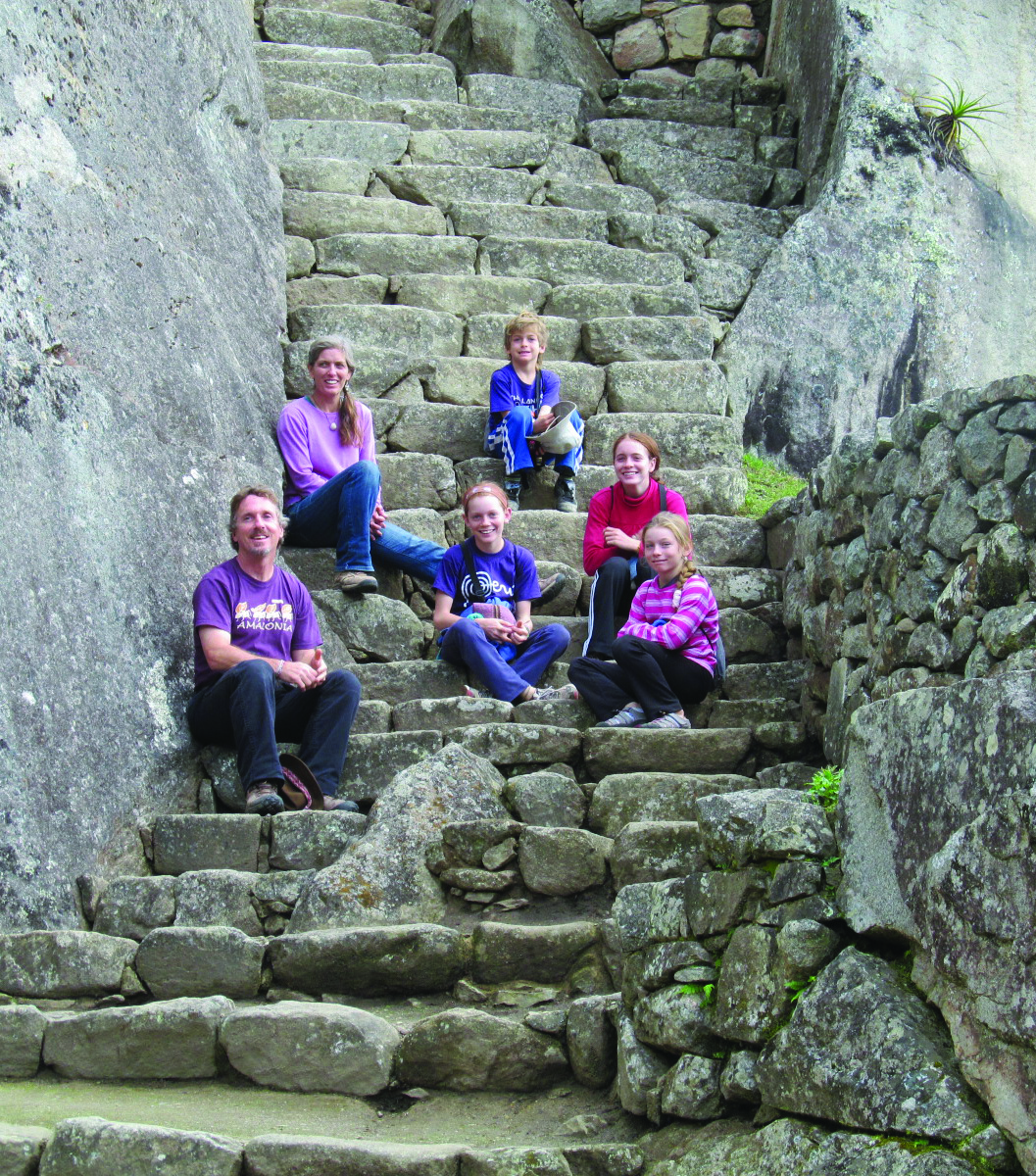The Ross Richer kids could tell you what it’s like to hike Huayna Picchu in the rain and the best way to make a frozen chupete popsicle. If you asked, they could also tell you, in a matter of minutes, how many students were in their parents’ SST groups – 184, to be exact.
It’s been almost a month since Jane and Jerrell Ross Richer and their children, Sierra (14), Naomi (12), Teresa (10) and Jordan (8), returned from two years of SST leadership in Peru. The family has a total of three years under their belt, with four semesters in their first term and six in their second. Of their 184 students, they estimate about 50 are still on campus, and are quick to talk about their strong bond with SSTers.“Their connection to our life was so important,” said Jerrell. “We know them so well. It’s great but different interacting back here. “
For both blocks, the Ross Richers were called to leave without much notice because other leaders lined up for the job had to bow out. They first went to Peru in April 2009, after less than two years in Goshen. The family moved from Sebastopol, Cali. in 2007 when Jerrell accepted a position as economics professor at the college.
Jane and Jerrell felt called to be leaders not only because of their own study-abroad experiences (Jerrell in Germany, Jane in Ecuador) and the “experiential learning foreign countries facilitate,” said Jerrell, but also because they wanted the kids to live in a new country and learn Spanish.
“It’s amazing for children,” said Jane. “Instead of studying how people live, you get to see people live – in the rainforest, in the mountains, the rich, the poor. They got an incredible social studies lesson they could never have learned in school.”
While the Ross Richers described their first semester as a “roller coaster ride,” they soon adjusted to life in Lima. By trial and error, they made changes to the program, such as regular service projects during study in poorer neighborhoods and having students spend half of the study portion in Cuzco, a more remote city in the Andes, as well as traditionally-used Lima, the country’s largely developed capital.
“The world is becoming so global,” said Jane. “Lima is a big city experience, and that’s an important part of Peru, but there’s lots of Burger Kings and McDonalds and it didn’t feel right for that to be students’ whole experience. There is such a giant peasant population in Peru and we wanted to get to know them.”
The family tried to give each group a slightly varied experience from the last, such as changing up field trips or going to new cities.
“The whole reason we’re going to a country in the global South is so students can see something different,” said Jerrell. “We wanted them to see places where Spanish is the second language.”
For their family, it was also an opportunity to get to know the country from top to bottom; they were often called the Ingles family, because many Peruvians were familiar with “Little House on the Prairie.” After service visits to the mountains and jungle, Jane’s favorite part was seeing students return.
“People change so much, and to know that you facilitated that change is incredible,” said Jane. “We loved seeing students take risks and do things they never thought they could do.”
The transition back to Goshen is a strange time that any SSTer can attest to, but one the Ross Richers say has been a bit easier the second time around, perhaps because they knew what to expect. Sierra, Naomi, Teresa and Jordan are homeschooled by Jane, and Jerrell is back to teaching. Yet leaving a home you’ve known for two years, said Jerrell, is tough.
“It’s hard to come back because we said goodbye to people we’ve been working with very intimately, host families we’ve been eating with, our favorite taxi driver, Pedro,” said Jerrell. “When we say goodbye, we don’t know if we’ll see them again.”
The Ross Richers said they would lead again in Peru if asked, or move forward to a new country.
“People say, ‘Oh you guys were such great directors,’ but I don’t think there’s anything special about us,” said Jane. “When you’re there for a long time, you form relationships. People allowed us into their lives and helped us do things we couldn’t have done otherwise.”
Said Jerrell, “We could not have walked into a travel agency. We had to take risks in order to have experiences. We were completely at the mercy of people we knew, relying on the trust of our coordinators, saying a prayer. It turned out to be so worth it.”



